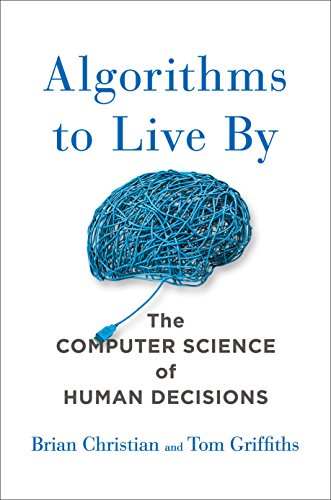Overview of Algorithms to Live By: The Computer Science of Human Decisions Link to heading
Summary Link to heading
Algorithms to Live By: The Computer Science of Human Decisions, written by Brian Christian and Tom Griffiths, explores how fundamental concepts from computer science can be applied to human decision-making in everyday life. The book delves into a range of algorithms and examines their utility in solving real-world problems, offering insights from fields such as operations research, mathematics, and cognitive science. The authors discuss various topics like optimal stopping, explore/exploit trade-offs, caching, and scheduling, illuminating how these principles can efficiently guide personal and professional decisions.
Review Link to heading
The book has been well-received for its engaging narrative that simplifies complex computer science concepts and relates them to practical human experiences. The authors skillfully balance technical explanations with accessible terminology, making it appealing to both tech-savvy readers and those unfamiliar with computer science. One of its key strengths is its interdisciplinary approach, bridging the gap between abstract algorithms and tangible life scenarios. However, some critiques point out that certain sections may delve deeply into algorithmic details, which may be less engaging for readers seeking a purely practical guide.
Key Takeaways Link to heading
- Optimal Stopping: This concept can be applied to making decisions about when to stop searching and start acting – for example, when to stop looking for a new apartment and commit to one.
- Explore/Exploit Trade-off: Balancing the need to explore new options (e.g., trying new restaurants) with exploiting known resources (e.g., visiting favorite eateries) can improve decision-making efficiencies.
- Caching: Learning from computer memory management, individuals can decide what information to prioritize and readily access in daily life.
- Scheduling: Algorithms that determine task prioritization can help manage time and resources more effectively.
Recommendation Link to heading
This book is highly recommended for individuals interested in understanding how computer science principles can be applied to everyday decisions to enhance rationality and efficiency. It is particularly beneficial for readers with a curiosity about the intersection of technology and life, as well as those seeking to improve problem-solving skills using systematic approaches. Students, professionals, and anyone keen on self-improvement will find valuable insights within its pages.
